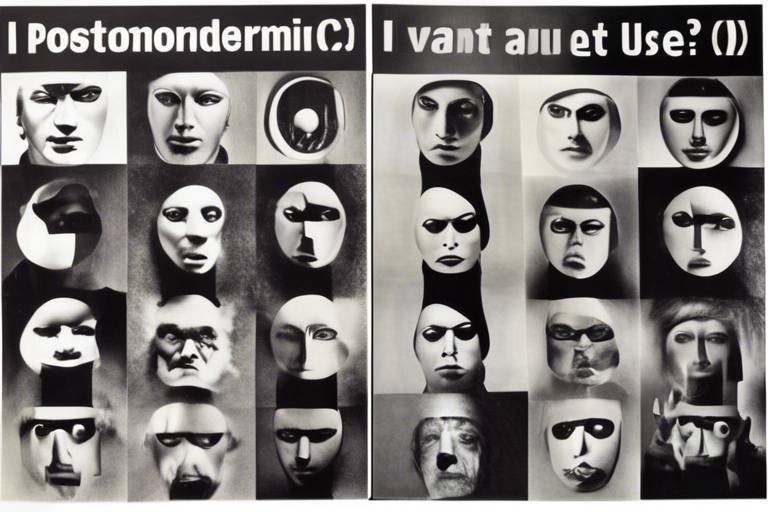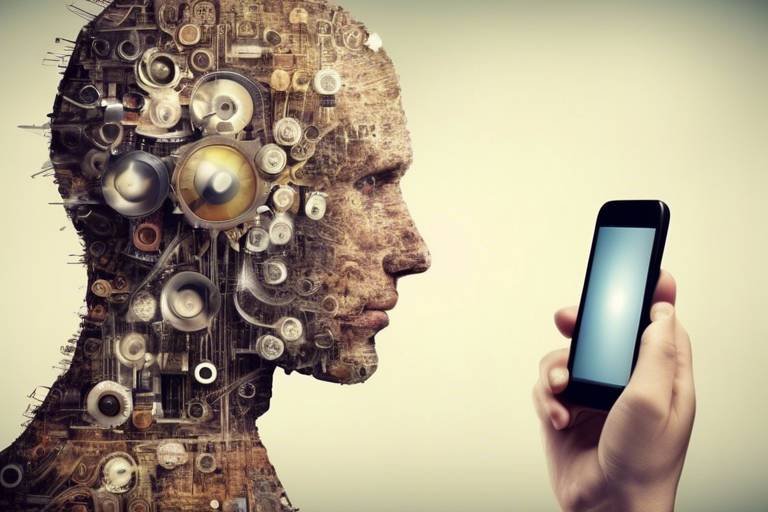Neuroscience and Philosophy - A Cross-Examination
In the vast landscape of human thought, few domains intertwine as profoundly as neuroscience and philosophy. These two fields, while distinct in their methodologies, converge on fundamental questions that define our understanding of existence. Imagine standing at the intersection of science and philosophy, where the tangible meets the abstract, and the mysteries of the mind unfold. This article embarks on a journey to explore how scientific discoveries in neuroscience shape philosophical thought and, conversely, how philosophical inquiries can influence scientific exploration.
At the heart of this cross-examination lies the enigma of consciousness. What does it mean to be aware? How do our thoughts and feelings arise from the intricate networks of neurons firing in our brains? Neuroscience seeks to unravel these mysteries through empirical research, while philosophy challenges us to ponder the implications of these findings. The interplay between these disciplines not only enhances our understanding of consciousness but also compels us to confront the nature of reality itself.
As we delve deeper, we encounter the mind-body problem, a classic philosophical dilemma that questions the relationship between our mental states and the physical processes of the brain. This issue raises profound questions: Are our thoughts merely the byproducts of neural activity, or is there something more to our mental experiences? The contrasting views of dualism and physicalism emerge here, each offering unique insights and challenges that invite further exploration.
In this intricate dance between neuroscience and philosophy, we also confront the debates surrounding free will and determinism. Do we truly have the capacity to make choices, or are our decisions pre-determined by the biological processes in our brains? This question not only affects our understanding of human agency but also shapes our moral and ethical frameworks. As we navigate through these complex discussions, it becomes clear that the implications of neuroscience extend far beyond the laboratory, influencing our societal norms and personal identities.
As we embark on this intellectual adventure, we will examine the ethical considerations that arise from advancements in neuroscience. The field of neuroethics scrutinizes the moral dilemmas associated with neurotechnology, from issues of consent to the potential for cognitive enhancement. These discussions are not merely academic; they have real-world implications that affect our daily lives and the fabric of society.
Through this article, we aim to illuminate the rich tapestry woven by neuroscience and philosophy, highlighting how their intersection can lead to a deeper understanding of ourselves and the world around us. Prepare to question, reflect, and engage with some of the most profound inquiries that define our existence.
- What is the main focus of the intersection between neuroscience and philosophy?
The primary focus is to explore how discoveries in neuroscience influence philosophical thought and vice versa, especially regarding consciousness, free will, and ethical implications. - How does neuroscience impact our understanding of free will?
Neuroscience challenges traditional notions of free will by revealing the neurological processes behind decision-making, raising questions about human agency. - What are the ethical concerns related to advancements in neuroscience?
Issues such as consent, cognitive enhancement, and the potential misuse of neurotechnology are central to neuroethics, reflecting the moral dilemmas that arise from scientific progress.

The Nature of Consciousness
Understanding consciousness is like trying to catch smoke with your bare hands. It's elusive, complex, and has puzzled thinkers for centuries. Both neuroscience and philosophy grapple with this profound question, each offering unique insights that can illuminate the other. At its core, consciousness involves our subjective experiences—those moments when we feel joy, sadness, or even confusion. But what exactly is happening in our brains when we experience these feelings? How does the physical brain give rise to something as rich and varied as our inner lives?
Numerous theories attempt to explain consciousness, each with its own strengths and weaknesses. For instance, the biological perspective suggests that consciousness arises from complex neural processes. According to this view, our thoughts and feelings are the byproducts of brain activity. This is a compelling argument, especially given the advancements in neuroimaging techniques that allow us to observe the brain in action. However, is it enough to explain the richness of our experiences? After all, just because we can see brain activity doesn't mean we fully understand the *why* behind it.
On the philosophical front, theories like phenomenology argue that consciousness cannot be reduced to mere physical processes. Instead, it emphasizes the importance of first-person experiences. Think about it: when you taste chocolate, the flavor is not just a combination of chemicals reacting in your mouth; it's a rich tapestry of memories, emotions, and sensations. This subjective experience, often referred to as the qualia, challenges the physicalist view by suggesting that there's something inherently unique about how we experience the world.
To further explore this intersection of neuroscience and philosophy, consider the following theories:
- Integrated Information Theory (IIT): This theory posits that consciousness corresponds to the level of information integration within a system. The more interconnected the information, the higher the level of consciousness.
- Global Workspace Theory (GWT): According to GWT, consciousness is a result of various cognitive processes working together in a "workspace" that allows for the sharing and integration of information.
- Panpsychism: This intriguing perspective suggests that consciousness is a fundamental feature of the universe, present in all things, not just humans or animals.
As we navigate these theories, it becomes clear that the nature of consciousness is not merely an academic exercise; it has profound implications for understanding ourselves and our place in the universe. Are we merely biological machines, or is there something more? This question echoes throughout both disciplines, challenging us to reconsider our assumptions about what it means to be conscious.
In conclusion, the exploration of consciousness is a vibrant tapestry woven from the threads of neuroscience and philosophy. Each discipline enriches our understanding, pushing us to question and redefine the very essence of what it means to be aware. As we continue to investigate these profound questions, we may discover that the answers lie not in the separation of mind and body, but in their intricate dance—a dance that is as beautiful as it is mysterious.
What is consciousness?
Consciousness refers to the state of being aware of and able to think about one's own existence, thoughts, and surroundings. It's the subjective experience that defines our perception of reality.
How do neuroscience and philosophy intersect in the study of consciousness?
Neuroscience provides empirical data about brain activity, while philosophy offers frameworks for understanding the implications of those findings on our understanding of mind and experience.
What are some theories of consciousness?
Some prominent theories include Integrated Information Theory, Global Workspace Theory, and Panpsychism, each offering unique perspectives on how consciousness arises and functions.
Why is understanding consciousness important?
Understanding consciousness can help us address fundamental questions about human nature, free will, and moral responsibility, impacting everything from ethics to mental health.

The Mind-Body Problem
The mind-body problem is one of the most intriguing philosophical dilemmas that has captivated thinkers for centuries. At its core, it grapples with the relationship between our mental states—thoughts, feelings, and consciousness—and our physical existence, which includes our bodies and brain functions. This intricate interplay raises profound questions: Are the mind and body separate entities, or do they exist as a unified whole? To understand this conundrum, we must delve into various perspectives, including dualism and physicalism, and consider how emerging theories are reshaping our understanding.
Dualism, championed by philosophers like René Descartes, posits that the mind and body are fundamentally distinct. Descartes famously declared, "I think, therefore I am," suggesting that the very act of thinking is proof of the mind's existence independent of the body. This view has led to the idea that mental phenomena cannot be entirely explained by physical processes. For instance, when we experience love or grief, these emotions feel profoundly real and significant, yet they elude simple physical explanation. Dualists argue that such subjective experiences point to a realm of consciousness that transcends mere biological functions.
On the other hand, physicalism offers a contrasting viewpoint. Physicalists assert that everything about the mind can ultimately be understood through physical processes and neural activities. They argue that advancements in neuroscience, such as brain imaging and neurochemical studies, provide compelling evidence that mental states correspond directly to brain states. For example, when we engage in deep thought or experience a moment of joy, specific neural pathways are activated, suggesting a direct correlation between our mental experiences and physical brain activity. This perspective challenges the dualist notion of a separate mental realm, advocating instead for a unified understanding of mind and body.
To further illuminate the debate, let's explore the key arguments from both sides:
| Aspect | Dualism | Physicalism |
|---|---|---|
| Nature of Mind | Separate from the body; non-physical | Identical to physical processes; reducible to brain activity |
| Subjective Experience | Unique and irreducible | Can be explained through neuroscience |
| Philosophical Implications | Challenges materialist views | Supports a scientific understanding of consciousness |
Emerging theories are also gaining traction in this ongoing discourse. Integrated information theory, for instance, posits that consciousness arises from the integration of information within a system, suggesting a more nuanced view of how mental states might emerge from physical processes. Meanwhile, panpsychism argues that consciousness is a fundamental property of all matter, proposing that even the simplest particles possess some form of consciousness. These theories challenge traditional dualistic and physicalist views, offering fresh perspectives that invite further exploration.
As we navigate the complexities of the mind-body problem, it becomes clear that our understanding of consciousness is far from settled. Each perspective brings valuable insights, and the interplay between neuroscience and philosophy continues to evolve. By examining these relationships, we gain a deeper appreciation of what it means to be human—an intricate dance between mind and body that shapes our experiences, decisions, and ultimately, our existence.
- What is the mind-body problem? The mind-body problem refers to the philosophical inquiry into the relationship between mental states and physical processes.
- What are dualism and physicalism? Dualism posits that the mind and body are separate entities, while physicalism argues that everything about the mind can be explained through physical processes.
- What are emerging theories in this field? Emerging theories like integrated information theory and panpsychism offer new perspectives on consciousness and its relationship with the physical world.

Dualism vs. Physicalism
The debate between dualism and physicalism is a cornerstone of the philosophical inquiry into the nature of the mind and consciousness. At its core, dualism posits that the mind and body are fundamentally different substances. This perspective suggests that mental phenomena are non-physical and cannot be fully explained by physical processes alone. Think of dualism as a two-story house: the mind resides on one floor, while the body occupies another, with no direct interaction between the two. Advocates of dualism, such as René Descartes, argue that our subjective experiences—like feelings, thoughts, and consciousness—cannot be reduced to mere brain activity.
On the flip side, physicalism argues that everything about the mind can be explained through physical processes and properties. This view holds that mental states are nothing more than brain states. Imagine physicalism as a single-story house, where everything is interconnected, and the mind is simply a product of the brain's activity. Physicalists point to the advancements in neuroscience, like brain imaging technologies, which have illuminated the neural correlates of consciousness and mental states, providing a scientific basis for their claims.
Both perspectives have their strengths and weaknesses. For instance, dualism offers a compelling account of the subjective nature of experiences, which seems to resist reduction to physical explanations. However, critics argue that dualism struggles to explain how these two distinct substances interact. In contrast, while physicalism provides a more unified understanding of mind and body, it faces challenges in adequately addressing the richness of conscious experience. This ongoing tension between dualism and physicalism invites a deeper examination of the mind-body relationship and encourages the exploration of emerging theories that may bridge the gap between these two philosophical positions.
To further illustrate the differences between dualism and physicalism, consider the following table:
| Aspect | Dualism | Physicalism |
|---|---|---|
| Definition | Mental and physical are distinct substances. | Everything is physical; mental states are brain states. |
| Key Proponents | René Descartes, Plato | Daniel Dennett, Patricia Churchland |
| Strengths | Accounts for subjective experience. | Supported by scientific evidence. |
| Weaknesses | Struggles with explaining interaction. | May overlook the richness of consciousness. |
As we delve deeper into the complexities of consciousness, the dialogue between dualism and physicalism continues to evolve. New theories and insights from neuroscience challenge us to rethink our understanding of the mind, prompting us to ask: Can we truly separate the mind from the body, or are they inextricably linked in ways we have yet to fully comprehend?

Arguments for Dualism
The debate surrounding dualism is as captivating as it is complex, with proponents passionately defending the idea that the mind and body are fundamentally distinct entities. One of the primary arguments for dualism stems from the subjective nature of conscious experiences. Think about it: when you feel joy, sadness, or even pain, those sensations are deeply personal and cannot be entirely explained by physical processes alone. This leads to the question: how can mere neural activity account for the rich tapestry of our subjective experiences?
Additionally, dualists highlight the limitations of physical explanations in addressing phenomena like qualia, the individual instances of subjective, conscious experience. For instance, consider the experience of tasting chocolate. While neuroscience can explain the chemical reactions happening in your brain, it struggles to articulate why chocolate tastes 'sweet' or evokes feelings of pleasure. This gap in understanding suggests that consciousness may possess qualities that transcend mere physical interactions.
Moreover, dualism finds support in the concept of intentionality, which refers to the capacity of the mind to be directed toward something, like thoughts about the future or memories of the past. This mental activity seems to operate independently of physical states. Supporters argue that if the mind were purely a product of physical processes, how could it possess the ability to reflect on abstract concepts or imagine scenarios that have yet to occur?
Another compelling argument for dualism comes from the phenomenon of near-death experiences (NDEs). Many individuals report vivid experiences during moments of clinical death, where they describe feelings of detachment from their physical bodies and encounters with otherworldly realms. These accounts challenge the notion that consciousness is solely a byproduct of brain activity, as they suggest the mind may exist independently of the body.
In summary, dualism posits that the mind and body are separate, each with its own distinct properties. This perspective invites us to consider the profound complexities of consciousness and the limitations of a purely physicalist approach. While physicalism has made significant strides in understanding the brain, dualism reminds us that there is still much to explore in the realm of human experience.
- What is dualism? Dualism is the philosophical view that the mind and body are two distinct entities that interact with each other.
- How does dualism differ from physicalism? While dualism posits that mental phenomena are non-physical, physicalism argues that everything, including mental states, can be explained by physical processes.
- What are some criticisms of dualism? Critics argue that dualism struggles to explain how two distinct substances can interact and that it may lead to a form of Cartesian dualism that is outdated.
- Are there any scientific studies supporting dualism? While most scientific research leans towards physicalism, anecdotal evidence from near-death experiences has been cited as a potential support for dualist views.

Arguments for Physicalism
Physicalism, the view that everything about the mind can be understood in terms of physical processes, presents a compelling argument in the ongoing debate about the nature of consciousness. Proponents of this perspective argue that as neuroscience progresses, it increasingly illuminates the intricate workings of the brain, providing insights that suggest mental states are deeply intertwined with physical states. For example, studies using neuroimaging techniques reveal how specific thoughts and emotions correlate with distinct neural activities. This correlation implies that our experiences are not just abstract phenomena but are rooted in the tangible workings of our brains.
One of the strongest arguments for physicalism lies in the advancements in neuroscience. As researchers uncover the biological mechanisms behind various mental functions, they demonstrate that phenomena like memory, perception, and even emotions can be traced back to neural circuits and biochemical processes. This understanding challenges the notion that consciousness exists in a realm separate from the physical world. For instance, when we experience joy, specific neurotransmitters such as dopamine are released, affecting our mood and behavior. This tangible connection between brain activity and mental states supports the physicalist viewpoint.
Furthermore, physicalists argue that the success of neuroscience in explaining disorders such as depression and schizophrenia further validates their perspective. By identifying biological markers and genetic predispositions related to these conditions, it becomes evident that mental health is not merely a psychological issue but is rooted in physical health. This approach not only enhances our understanding of mental illnesses but also guides the development of effective treatments, emphasizing the importance of a physicalist framework.
Critics of physicalism often point to the subjective nature of experiences, arguing that personal qualia—like the taste of chocolate or the color red—cannot be fully captured by physical explanations. However, physicalists contend that while subjective experiences are unique to individuals, they can still be analyzed through a scientific lens. This leads to the idea that qualia might be emergent properties of complex neural interactions, thereby bridging the gap between subjective experience and physical processes.
In summary, the arguments for physicalism are bolstered by:
- Neuroscientific Evidence: Discoveries linking brain activity to mental states.
- Biological Basis of Mental Disorders: Insights into how physical health affects mental well-being.
- Emergent Properties: The notion that subjective experiences can arise from complex neural interactions.
As we delve deeper into the realms of neuroscience and philosophy, it becomes increasingly clear that the physicalist perspective offers a robust framework for understanding the mind. By grounding consciousness in the physical processes of the brain, we not only align ourselves with scientific advancements but also pave the way for a more integrated understanding of human experience.
- What is physicalism? Physicalism is the philosophical view that everything about the mind can be explained in terms of physical processes and properties.
- How does neuroscience support physicalism? Neuroscience provides evidence linking specific brain activities to mental states, suggesting that consciousness is rooted in physical processes.
- What are some criticisms of physicalism? Critics argue that subjective experiences, or qualia, cannot be fully explained by physical processes alone.
- Can physicalism account for free will? Physicalists believe that while our choices may be influenced by physical processes, this does not negate the existence of free will; it simply redefines it within a physical framework.

Emerging Theories
As we dive deeper into the intricate relationship between neuroscience and philosophy, several are gaining traction, challenging traditional views and offering fresh perspectives on consciousness. Two of the most noteworthy theories are integrated information theory (IIT) and panpsychism. These theories not only aim to bridge the gap between scientific findings and philosophical inquiry but also enrich our understanding of what consciousness truly entails.
Integrated information theory, developed by neuroscientist Giulio Tononi, posits that consciousness corresponds to the capacity of a system to integrate information. In simpler terms, it suggests that the more interconnected and complex the information processing is within a system, the higher the level of consciousness. This theory provides a framework for measuring consciousness quantitatively, which could potentially lead to new insights into both human and non-human consciousness. For instance, a computer with sophisticated algorithms might exhibit a degree of consciousness if it can integrate information effectively, raising profound questions about the nature of sentience.
On the other hand, panpsychism takes a radically different approach by positing that consciousness is a fundamental feature of the universe, present even in the simplest forms of matter. According to this view, everything— from rocks to humans— possesses some degree of consciousness. This idea challenges the traditional notion that consciousness arises only from complex biological systems. By proposing that consciousness exists on a spectrum, panpsychism opens the door to a more inclusive understanding of consciousness, suggesting that even the most basic particles might contribute to the vast tapestry of conscious experience.
Both theories have sparked considerable debate among philosophers and neuroscientists alike. For example, proponents of IIT argue that it provides a scientific basis for understanding subjective experience, while critics question its applicability and relevance. Similarly, panpsychism has been met with skepticism, as many find it difficult to accept that inanimate objects could possess consciousness. Yet, these theories invite us to reconsider our assumptions about the mind and challenge the boundaries between the mental and physical realms.
In summary, as neuroscience continues to unveil the complexities of the brain, these emerging theories—integrated information theory and panpsychism—serve as crucial touchpoints for a deeper philosophical exploration of consciousness. They encourage us to ask fundamental questions: What does it mean to be conscious? How do we define the boundaries of sentience? As we ponder these questions, we inch closer to unraveling the mysteries of the mind.
- What is integrated information theory?
Integrated information theory (IIT) suggests that consciousness is related to the ability of a system to integrate information. The more interconnected the information processing, the higher the level of consciousness. - What does panpsychism propose?
Panpsychism posits that consciousness is a fundamental aspect of the universe, suggesting that everything, even the simplest forms of matter, possesses some degree of consciousness. - How do these theories impact our understanding of consciousness?
These theories challenge traditional views and encourage a more nuanced understanding of consciousness, prompting us to reconsider the nature of sentience and the relationship between mind and matter.

Free Will and Determinism
The debate over free will and determinism is one of the most captivating discussions in both neuroscience and philosophy. At its core, this debate questions whether our choices are genuinely free or if they are predetermined by a series of biological and environmental factors. Imagine standing at a fork in the road, where one path leads to a life of spontaneity and the other is paved with the inevitability of past events. Which path do you choose? This dilemma reflects our struggle to understand the essence of human agency.
Neuroscience has made significant strides in uncovering the mechanisms behind decision-making. Studies using brain imaging technology, such as fMRI, have shown that our brains often initiate decisions before we consciously become aware of them. This raises profound questions: If our brains are firing away before we even realize it, can we truly claim to have made a choice? Or are we simply following a script that has already been written? For instance, a study by Libet demonstrated that brain activity predicting a decision occurs several hundred milliseconds before a person consciously decides to act. This finding can feel unsettling, as it challenges our intuitive sense of control over our actions.
However, the implications of these neuroscientific findings extend beyond mere curiosity. They plunge us into the murky waters of moral responsibility. If our decisions are influenced—or even determined—by neural processes beyond our control, how can we hold individuals accountable for their actions? This question is not just academic; it has real-world implications for our justice system, personal relationships, and societal norms. Take, for example, the case of a person committing a crime while under the influence of a neurological condition. Should they be judged with the same standards as someone acting with full cognitive awareness?
Philosophers have long debated these issues, and their insights can help us navigate this complex landscape. Some argue for a deterministic view, suggesting that every action is the result of preceding events, much like a chain reaction. Others advocate for a more libertarian perspective, positing that humans possess an innate capacity for free will, allowing us to transcend biological determinism. This philosophical tension echoes through our culture, influencing everything from literature to religion.
To further illustrate the contrast between these perspectives, consider the following table:
| Perspective | Key Beliefs | Implications |
|---|---|---|
| Determinism | All events, including human actions, are determined by preceding causes. | Challenges the notion of moral responsibility and accountability. |
| Libertarian Free Will | Humans have the ability to make choices independent of prior causes. | Supports the idea of personal accountability and moral responsibility. |
As we delve deeper into this fascinating intersection of neuroscience and philosophy, it becomes clear that our understanding of free will is not merely an academic exercise; it's a fundamental aspect of what it means to be human. The more we learn about the brain's inner workings, the more we must grapple with the implications of those discoveries on our sense of self and our societal structures. Are we the masters of our fate, or are we merely puppets dancing to the tune of our neurobiology? This question is one that will continue to spark debate and inspire inquiry for generations to come.
- What is the difference between free will and determinism?
Free will suggests that individuals can make choices independent of prior causes, while determinism holds that every event is the result of preceding events. - How does neuroscience challenge the concept of free will?
Neuroscience has shown that brain activity can precede conscious decision-making, suggesting that our choices may not be as free as we believe. - What are the implications of these debates for moral responsibility?
If our actions are determined by factors beyond our control, it raises significant questions about accountability and the justice system.

Neuroscientific Perspectives
When we dive into the world of neuroscience, we find ourselves standing at the crossroads of brain science and the age-old debate about free will. Neuroscientific research has made significant strides in understanding how our brains function, particularly in relation to decision-making processes. But here’s the kicker: as we uncover the mechanisms behind our choices, we begin to question the very nature of human agency. Are we truly the architects of our actions, or are we merely puppets dancing to the strings of neural activity?
One of the most fascinating areas of study involves examining how the brain prepares for decisions, often before we are even consciously aware of them. For example, research conducted by neuroscientists such as Benjamin Libet has shown that brain activity related to a decision can occur several milliseconds before we consciously feel that we have made a choice. This finding raises eyebrows and ignites debates: if our brains are firing off signals before we are aware of our choices, what does this mean for our understanding of free will?
Moreover, neuroscientific perspectives extend beyond mere observation; they challenge the traditional notions of moral responsibility. If our decisions are influenced by biological processes, then how accountable are we for our actions? This question becomes even more complex when we consider various factors such as genetics, environment, and even social influences that shape our neural pathways. In a sense, our brains are like intricate maps, where every experience and interaction carves out new routes, leading us to make certain choices over others.
To illustrate this, consider the following table that summarizes key neuroscientific findings related to decision-making:
| Study | Key Findings | Implications for Free Will |
|---|---|---|
| Libet's Experiment | Brain activity precedes conscious decision-making. | Challenges the notion of conscious control over decisions. |
| Haggard and Eimer (1999) | Neural readiness potential occurs before conscious intention. | Suggests decisions are initiated subconsciously. |
| fMRI Studies | Specific brain regions activate during decision-making processes. | Points to a biological basis for choices. |
As we reflect on these findings, it becomes clear that neuroscientific perspectives are reshaping our understanding of free will. While some argue that these insights diminish personal responsibility, others contend that they simply add layers to the complex tapestry of human behavior. In navigating this intricate landscape, we must ask ourselves: if our choices are influenced by neural processes, does this negate our ability to act freely, or does it simply redefine what it means to be 'free'?
Ultimately, the intersection of neuroscience and philosophy in the realm of free will invites us to reconsider our assumptions about human agency. It challenges us to think critically about the implications of our findings and how they affect our understanding of morality, ethics, and personal accountability. As we continue to explore the depths of the human brain, one thing is certain: the conversation around free will is far from over, and it is likely to evolve as our scientific understanding deepens.
- What is the main focus of neuroscientific perspectives on free will?
Neuroscientific perspectives primarily focus on how brain activity influences decision-making processes and what this means for our understanding of free will. - Do neuroscientific findings suggest that we lack free will?
Not necessarily. While some findings challenge traditional views of free will, they also invite a more nuanced understanding of human agency. - How do ethical considerations arise from neuroscientific research?
Ethical considerations emerge as we question accountability, moral responsibility, and the implications of neurotechnology on personal identity.

Philosophical Implications
The intersection of neuroscience and philosophy opens up a Pandora's box of questions regarding free will, moral responsibility, and the essence of human behavior. As we delve into the implications of neuroscientific findings, we can’t help but wonder: if our decisions are influenced by neural processes, what does that mean for our sense of agency? Imagine a puppet on strings, where every movement is dictated by an unseen force—this analogy captures the essence of the debate surrounding human autonomy.
Neuroscientific research has uncovered fascinating insights into how our brains make decisions. For instance, studies have shown that certain brain activity can predict a person's choice several seconds before they are consciously aware of it. This revelation raises profound philosophical questions: Are we truly making choices, or are we merely experiencing the illusion of choice? If our thoughts and actions are predetermined by neural mechanisms, what happens to the concept of moral accountability? Is it fair to hold individuals responsible for actions that may be influenced by factors beyond their control?
Furthermore, the implications extend to our understanding of punishment and rehabilitation. If our behaviors are significantly shaped by biological and environmental factors, should our justice system adapt to focus more on rehabilitation rather than punishment? This shift could lead to a more compassionate approach to criminal behavior, recognizing that many offenders may be products of their circumstances rather than inherently 'bad' individuals.
To illustrate these philosophical implications, consider the following table that summarizes key points of contention:
| Aspect | Neuroscientific Perspective | Philosophical Perspective |
|---|---|---|
| Free Will | Decisions are influenced by brain activity. | Questioning the existence of true free will. |
| Moral Responsibility | Accountability may be diminished due to biological influences. | Re-evaluation of punishment and justice. |
| Human Behavior | Behavior can be predicted based on neural patterns. | Understanding behavior as a complex interplay of factors. |
As we navigate these philosophical waters, it becomes clear that the dialogue between neuroscience and philosophy is not just academic; it has real-world implications for how we perceive ourselves and others. The more we understand about the brain, the more we must grapple with the ethical considerations that arise. For example, if we accept that our decisions are heavily influenced by our neural wiring, how do we address issues of guilt and punishment? This is where the philosophical implications become crucial, urging us to rethink fundamental aspects of human nature.
In summary, the philosophical implications of neuroscientific findings compel us to reconsider our views on free will and moral responsibility. The dialogue between these two fields not only enriches our understanding but also challenges us to adapt our societal norms and legal frameworks to better reflect the complexities of human behavior. As we continue to explore this intersection, one thing is certain: the conversation is just beginning, and it promises to be as enlightening as it is challenging.
- What is the mind-body problem? The mind-body problem addresses the relationship between mental states and physical processes, questioning how the mind interacts with the body.
- Can neuroscience explain consciousness? While neuroscience provides insights into brain activity, the nature of consciousness remains a deeply philosophical question.
- What are the ethical implications of neuroscience? Ethical implications include issues of consent, cognitive enhancement, and the potential misuse of neurotechnological advancements.
- How does neuroscience impact our understanding of free will? Neuroscience challenges traditional notions of free will by suggesting that many decisions are influenced by unconscious brain processes.
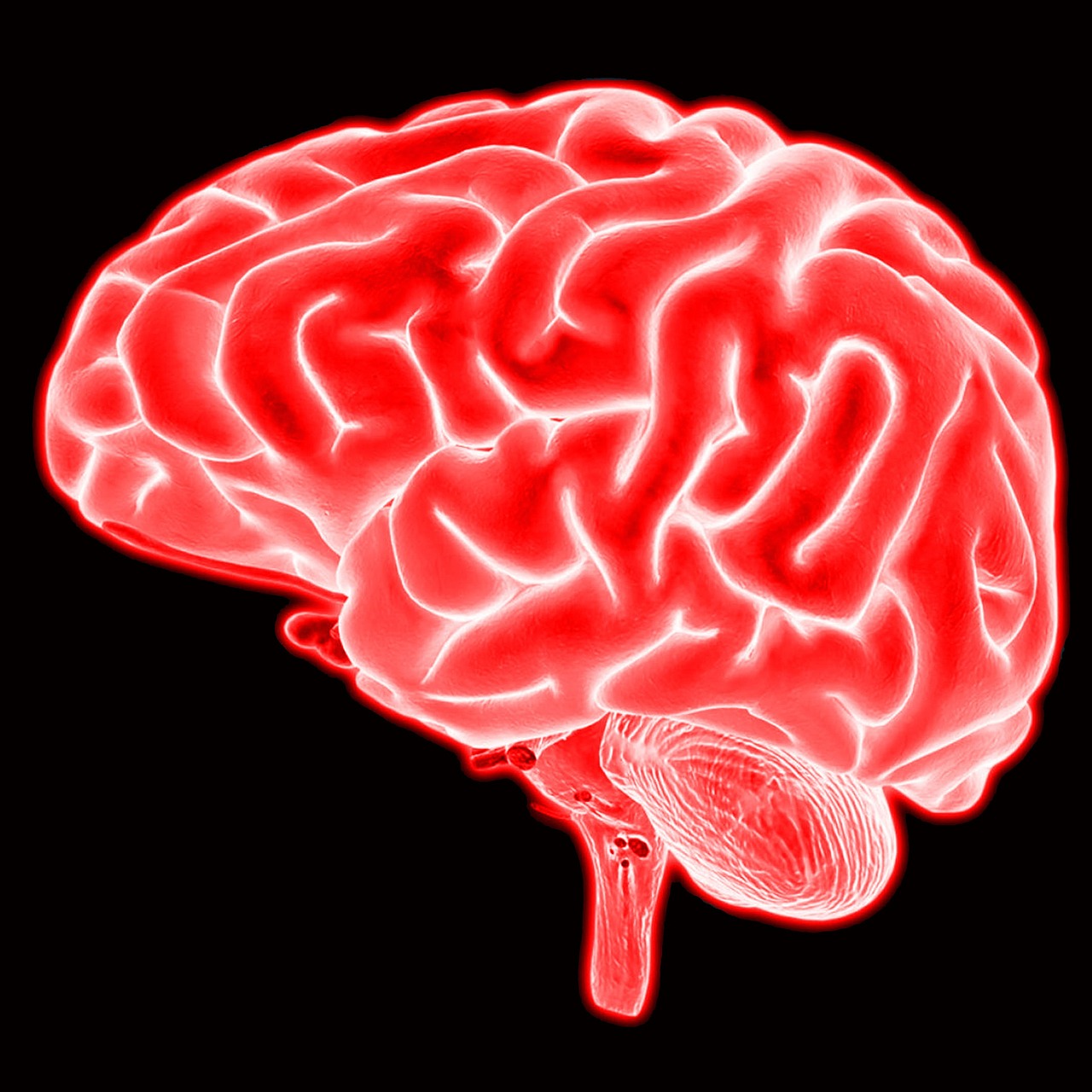
Ethics of Neuroscience
The rapid advancements in neuroscience have opened up a treasure trove of possibilities, but they also come with a hefty dose of ethical dilemmas. As we delve deeper into the workings of the brain, we find ourselves grappling with questions that not only challenge our understanding of the mind but also our moral compass. The ethical implications of neurotechnology are vast, touching on issues like personal identity, privacy, and societal norms. What happens when we can manipulate thoughts or enhance cognitive abilities? Are we playing God, or are we simply utilizing the tools of science to improve human life?
One of the most pressing concerns in the field of neuroscience is the concept of neuroethics. This branch of ethics focuses specifically on the moral dilemmas that arise from neuroscience research and its applications. It raises critical questions about consent, especially when it comes to vulnerable populations. For instance, how do we ensure that individuals fully understand the implications of participating in a study that involves brain imaging or cognitive enhancement? The complexity of the human brain makes it challenging to guarantee that participants are making informed decisions.
Moreover, the potential for cognitive enhancement raises another layer of ethical questions. Imagine a world where students can enhance their learning capabilities with a simple neurotechnological intervention. While this could lead to significant advancements in education, it also creates disparities between those who can afford such enhancements and those who cannot. This brings us to the issue of equity in access to neurotechnological advancements. If only a select few can enhance their cognitive abilities, what does that mean for social justice?
Furthermore, the misuse of neurotechnology poses a significant threat. As we develop tools that can influence behavior, the potential for abuse increases. For example, if neurotechnological interventions can alter a person's emotional state or decision-making processes, who is responsible for these changes? This leads us to consider the implications for accountability and moral responsibility. If a person commits a crime after undergoing a neurotechnological procedure, can we hold them fully accountable for their actions?
To further illustrate these ethical dilemmas, consider the following table that outlines key issues in neuroethics:
| Ethical Issue | Description |
|---|---|
| Informed Consent | Ensuring participants understand the risks and implications of neuroscience research. |
| Cognitive Enhancement | The moral implications of using technology to enhance mental capabilities. |
| Privacy | Protecting individuals' mental data from unauthorized access or misuse. |
| Accountability | Determining moral responsibility in cases where neurotechnology influences behavior. |
As we navigate this uncharted territory, it's crucial to engage in discussions that include not only scientists and ethicists but also the public. Society must grapple with these questions to develop ethical frameworks that guide the responsible use of neuroscience. By fostering a dialogue that encompasses diverse perspectives, we can create a future where the benefits of neuroscience are enjoyed by all, while minimizing potential harms.
- What is neuroethics?
Neuroethics is the study of the ethical, legal, and social implications of neuroscience research and its applications. - Why is informed consent important in neuroscience?
Informed consent ensures that participants fully understand the risks and benefits of participating in neuroscience research. - What are the risks of cognitive enhancement?
Cognitive enhancement can lead to disparities in access and potential misuse, raising ethical concerns about fairness and accountability. - How can society address the ethical challenges of neuroscience?
By engaging in open discussions and creating inclusive ethical frameworks, society can navigate the complexities of neuroscience responsibly.
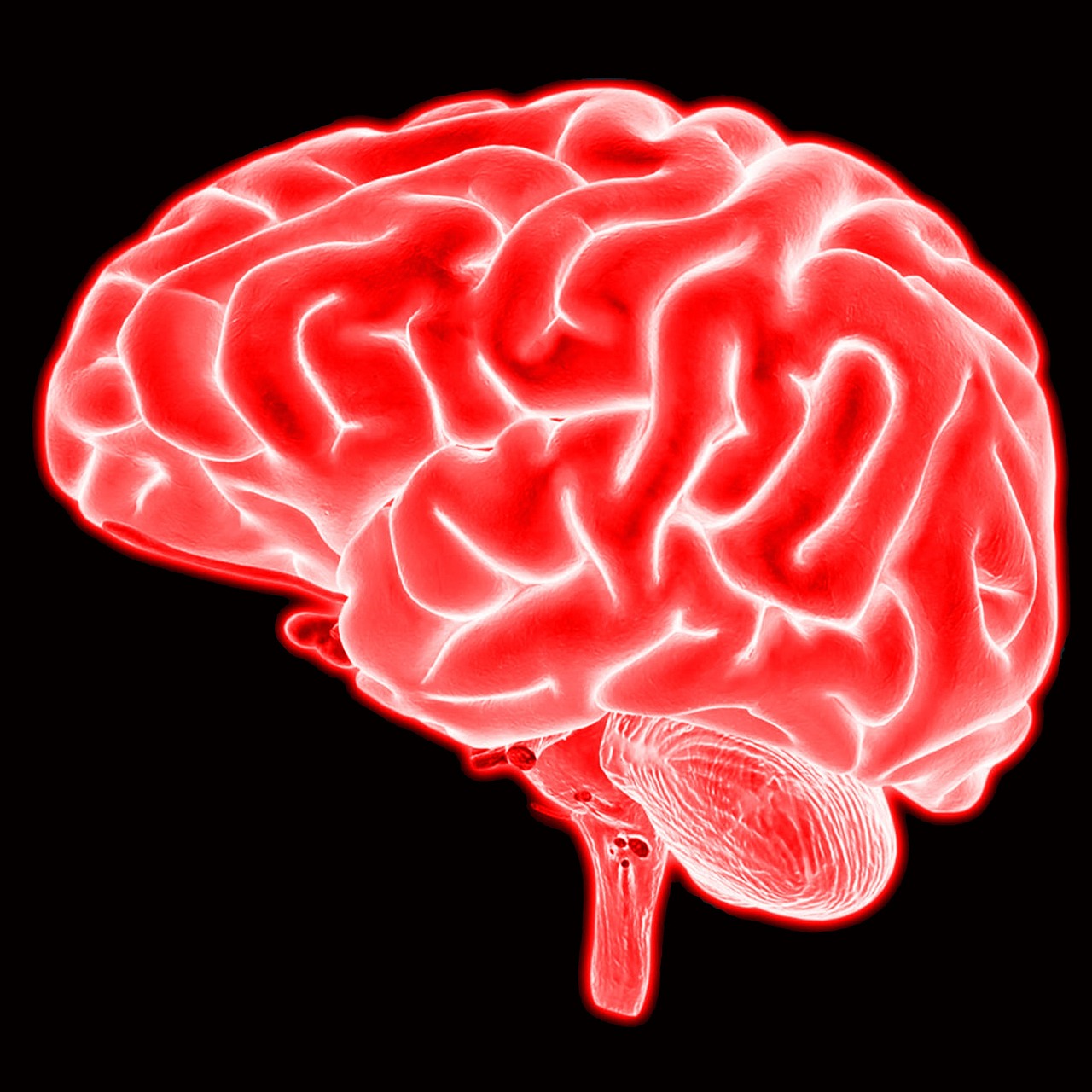
Neuroethics
As we plunge deeper into the realm of neuroscience, the ethical implications of our discoveries become increasingly significant. serves as a bridge between the scientific advancements in understanding the brain and the moral responsibilities that come with such knowledge. It raises profound questions: What does it mean to manipulate the brain? How far can we go in enhancing cognitive abilities without compromising our humanity?
One of the central issues in neuroethics is informed consent. In research involving brain interventions, ensuring that participants fully understand the potential risks and benefits is crucial. The complexity of neurological procedures can make it challenging for individuals to grasp what they are consenting to. This raises an ethical dilemma: Are we truly able to give informed consent when the science itself is still evolving?
Moreover, the concept of cognitive enhancement has sparked heated debates. With advancements in neurotechnology, the possibility of enhancing memory, intelligence, or even emotional well-being is tantalizing. However, this leads us to question the fairness of such enhancements. Will they create a new class divide, where only the wealthy can afford to enhance their cognitive abilities, leaving others behind? The implications for societal norms and values are profound.
Another pressing concern is the potential for the misuse of neurotechnological advancements. For instance, neuroimaging techniques can reveal intimate details about a person's thoughts and feelings. This capability raises serious concerns about privacy. If we can read minds, what safeguards are in place to protect individuals from exploitation? The idea of using brain data in legal settings or for marketing purposes is both fascinating and frightening.
To navigate these complex issues, seeks to establish guidelines and frameworks that can help navigate the moral landscape of neuroscience. Some of the key ethical considerations include:
- Consent: Ensuring participants are fully aware of what they are agreeing to.
- Equity: Addressing the potential for cognitive enhancement to widen social disparities.
- Privacy: Protecting individuals from unauthorized access to their neurological data.
- Accountability: Determining who is responsible when neurotechnology leads to unintended consequences.
As we stand on the brink of extraordinary discoveries in neuroscience, the role of neuroethics becomes ever more crucial. It is not just about what we can do with our newfound knowledge, but also about what we should do. The intersection of neuroscience and ethics invites us to reflect on our values and the kind of society we wish to create in light of these advancements.
What is neuroethics?
Neuroethics is a field that examines the ethical implications of neuroscience research and its applications, focusing on issues like consent, cognitive enhancement, and the potential misuse of neurotechnology.
Why is informed consent important in neuroscience?
Informed consent is critical because it ensures that participants understand the risks and benefits of participating in research, especially in complex neurological studies where the implications may not be immediately clear.
What are the potential risks of cognitive enhancement?
Cognitive enhancement can lead to ethical concerns about fairness, access, and the potential for creating a divide between those who can afford enhancements and those who cannot.
How does neuroethics address privacy concerns?
Neuroethics emphasizes the need for safeguards to protect individuals' neurological data from unauthorized access and exploitation, ensuring that personal thoughts and feelings remain private.
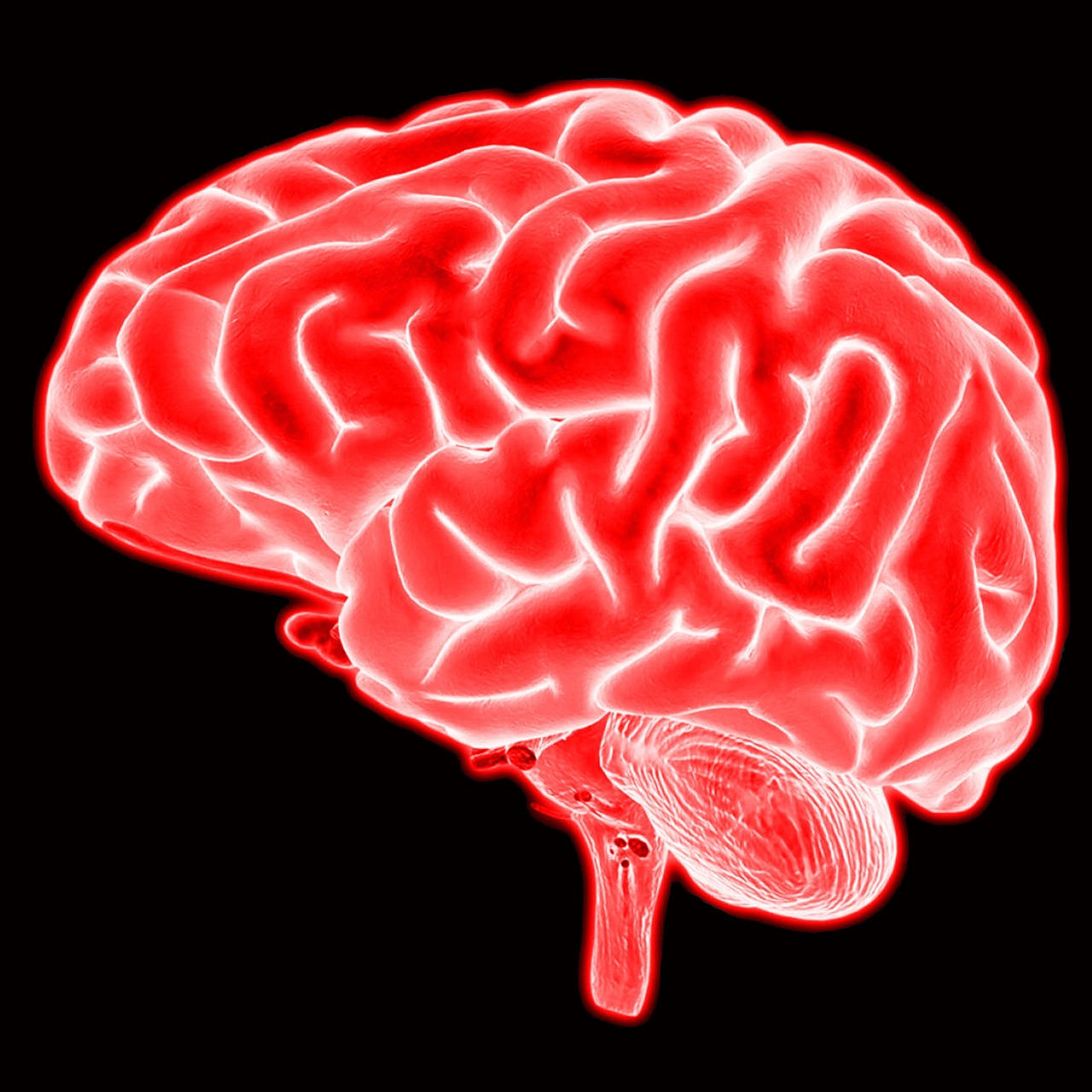
Impacts on Society
The advancements in neuroscience are not just confined to laboratories or academic discussions; they ripple through the very fabric of our society, influencing various aspects of our daily lives. As we uncover the intricate workings of the brain, we also unveil new ethical dilemmas and societal implications that challenge our existing frameworks. For instance, consider how our understanding of mental health has evolved. With neuroscience shedding light on the biological underpinnings of conditions like depression and anxiety, there's a growing recognition that these issues are not merely personal failings but are rooted in complex neural processes. This shift in perspective can lead to more compassionate approaches to treatment and support.
Moreover, the insights gained from neuroscience have significant implications for education. By understanding how the brain learns and processes information, educators can develop more effective teaching methods tailored to diverse learning styles. For instance, neuroeducation is an emerging field that integrates neuroscience findings with educational practices, aiming to enhance student engagement and retention. Imagine classrooms where lessons are designed not just based on curriculum standards but also on the latest brain science; this could revolutionize how we educate future generations.
However, these advancements also raise critical questions about privacy and identity. As neurotechnologies become more sophisticated, they pose risks to personal privacy. For example, brain imaging techniques can reveal thoughts and intentions, leading to ethical concerns about consent and the potential misuse of such information. In a society where our thoughts could be accessed or manipulated, how do we maintain our autonomy? This is a question that demands attention and careful consideration.
Additionally, the societal implications extend to policy-making. As we gain a deeper understanding of the brain, there is a need for policies that reflect these insights, particularly in mental health care and criminal justice. For instance, if certain behaviors can be traced back to neural dysfunctions, how should we approach accountability and rehabilitation? The intersection of neuroscience and law could pave the way for more informed legal frameworks that consider the neurological basis of behavior.
In summary, the impacts of neuroscience on society are profound and multifaceted. They challenge us to rethink our views on mental health, education, privacy, and justice. As we stand at this crossroads, it is essential to engage in ongoing discussions about the ethical implications of these discoveries. Only then can we harness the power of neuroscience to foster a more informed, compassionate, and equitable society.
- How does neuroscience influence our understanding of mental health?
Neuroscience provides insights into the biological factors underlying mental health conditions, promoting a more compassionate approach to treatment as these conditions are seen as rooted in neural processes rather than personal failings.
- What is neuroeducation?
Neuroeducation is an emerging field that combines neuroscience findings with educational practices to create effective teaching methods tailored to how the brain learns.
- What are the ethical concerns surrounding neurotechnology?
Ethical concerns include issues of privacy, consent, and the potential misuse of information obtained through brain imaging and other neurotechnological tools.
- How can neuroscience inform policy-making?
Neuroscience can lead to more informed legal frameworks that consider the neurological basis of behavior, particularly in areas like mental health care and criminal justice.
Frequently Asked Questions
- What is the relationship between neuroscience and philosophy?
Neuroscience and philosophy intersect in exploring fundamental questions about the mind, consciousness, and human behavior. Neuroscience provides scientific insights that can challenge or support philosophical theories, while philosophy offers critical perspectives that can shape scientific inquiry.
- How does neuroscience contribute to our understanding of consciousness?
Neuroscience sheds light on the biological underpinnings of consciousness by studying brain activity and neural processes. This research helps to inform various theories of consciousness, revealing how subjective experiences may arise from physical brain functions.
- What are the main arguments for dualism and physicalism?
Dualism posits that the mind and body are distinct entities, emphasizing the subjective nature of experiences that may not be fully explained by physical processes. In contrast, physicalism argues that all mental states can be understood through physical phenomena, supported by advancements in neuroscience that suggest a unified view of mind and body.
- What are some emerging theories in the study of consciousness?
Emerging theories like integrated information theory and panpsychism are gaining traction. Integrated information theory suggests that consciousness corresponds to the amount of information processed by a system, while panpsychism posits that consciousness is a fundamental feature of all matter, thus bridging the gap between neuroscience and philosophical inquiry.
- How do neuroscientific findings affect the concept of free will?
Neuroscientific studies on decision-making processes raise questions about free will by suggesting that many choices may be influenced by unconscious brain activity. This challenges traditional views of human agency and calls into question the extent to which individuals can be held morally responsible for their actions.
- What ethical considerations arise from advancements in neuroscience?
As neuroscience progresses, ethical dilemmas emerge regarding neurotechnology, personal identity, and privacy. Issues such as informed consent, cognitive enhancement, and potential misuse of neurotechnological advancements are critical areas of concern that require careful consideration.
- How can insights from neuroscience inform societal norms and policies?
Insights from neuroscience can shape ethical frameworks and influence public perception of mental health and behavior. By understanding the biological basis of behavior, policymakers can create more effective mental health strategies and promote a more informed discussion about cognitive and emotional well-being.



